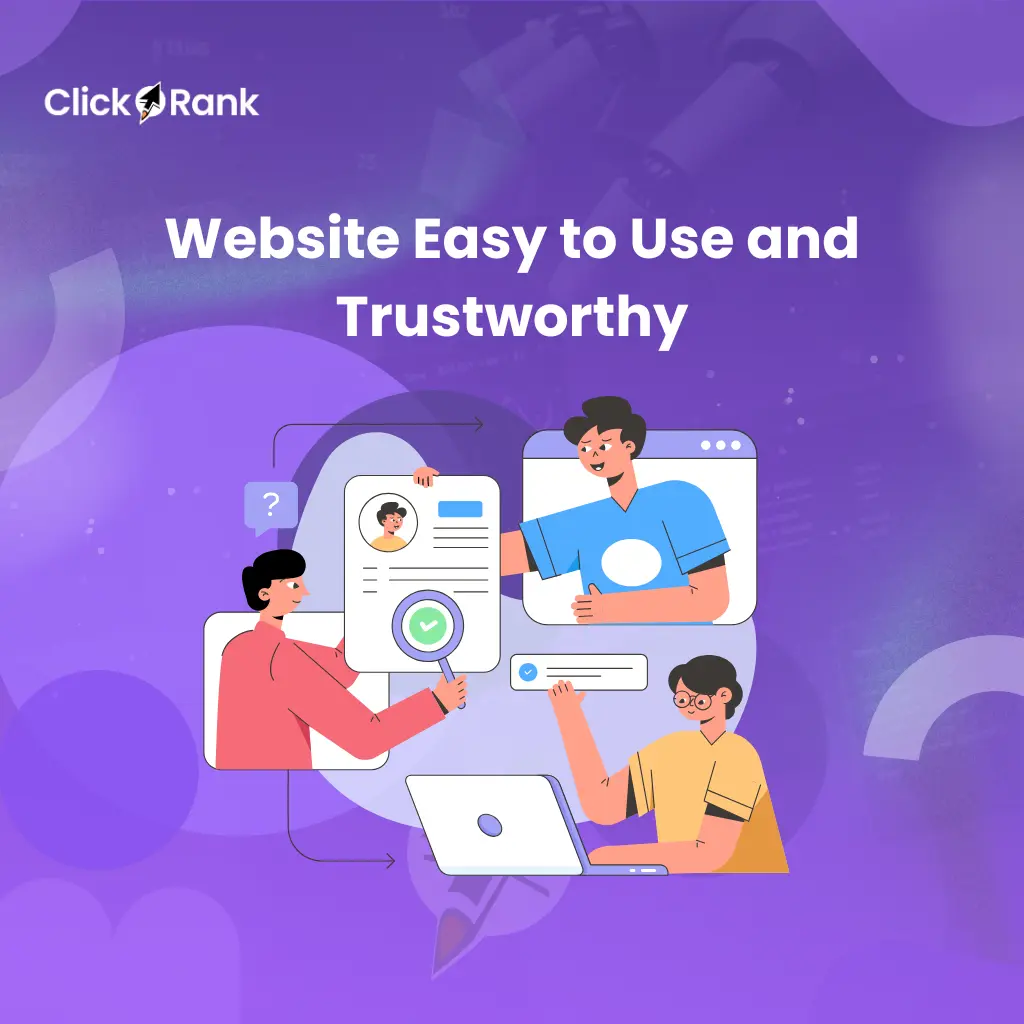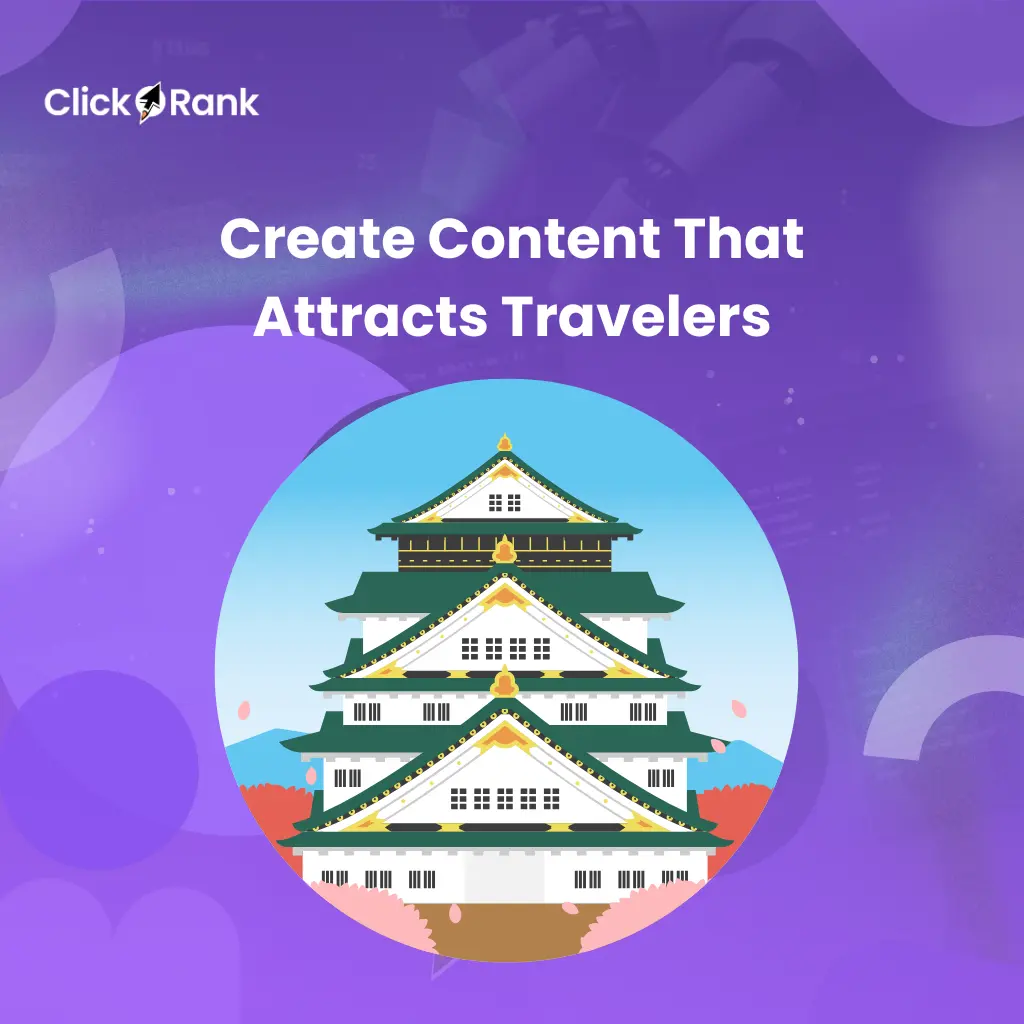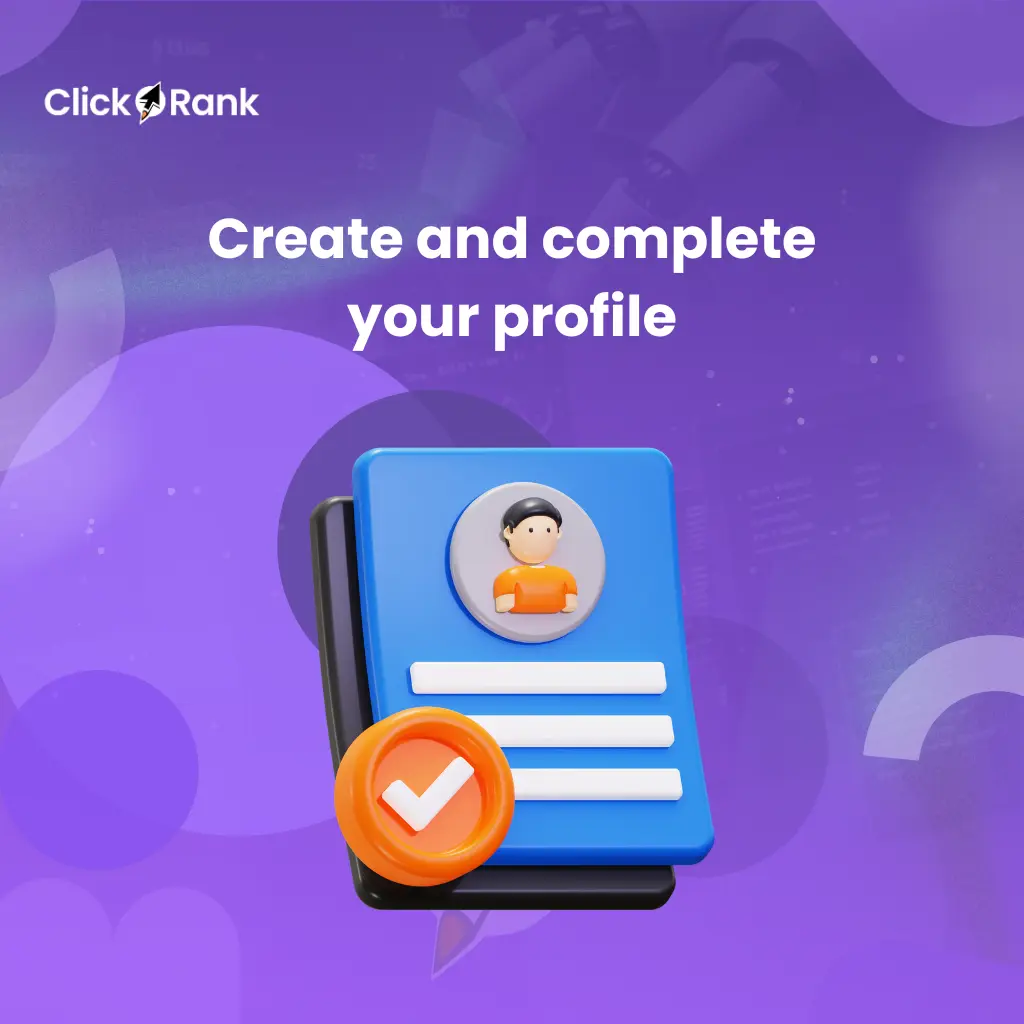SEO for Travel Agencies
Your travel agency needs to be seen online. Why? Because most people now plan and book trips on the internet. We can show you how to get your business in front of these people. We'll give you simple, practical steps to improve your online presence.
Get Found on Local Searches
Getting found by local clients is your first step. When people search for "travel agencies near me," you want to be at the top. We will explain how to make your business stand out in your local area. This brings more visitors to your site and more people to your office.
Use Google Business Profile
Make sure your Google Business Profile is complete. Fill in your hours, address, and phone number. Add photos of your office or team. This helps Google show your business to local searchers.
Get Reviews From Happy Clients
Ask your clients to leave reviews on Google. Good reviews build trust. They also help your local ranking. More reviews show that your business is active and helpful.
Build Local Citations
A citation is when your business name, address, and phone number are listed online. Think of sites like Yelp or local business directories. Having correct citations helps Google confirm your business details.
Get more clients by showing up in local searches. We’ll teach you how to master local search so you’re the first choice for people in your area.
Improve Your Website for Visitors
A good website keeps visitors on the page. If your site is slow or hard to use, people will leave. We will show you how to improve your website so visitors stay longer and become clients.
Focus on Fast Website Speed
Your website should load quickly. A slow site makes visitors leave. We use tools to check and improve your website speed. A faster site means a better user experience.
Make Your Site Mobile-Friendly
Most people use their phones to browse the internet. Your website must work well on a phone. We can help you make sure your site looks good and is easy to use on any mobile device.
Create Simple, Clear Navigation
Help visitors find what they need. Use simple menus and clear links. If your site is easy to navigate, people will stay longer and explore your services.
We will help you improve your website to provide a better experience for your visitors. This makes them more likely to book a trip with you.
Write Useful Content
Writing good content shows you are an expert. It also helps people find your website. When you write about travel topics, you attract people who are interested in travel. This brings new visitors to your site.
Write Blog Posts About Destinations
Create articles about places your clients love to visit. For example, you can write "Top 5 things to do in Paris" or "A guide to planning a safari trip." This content attracts people who are planning a trip.
Answer Common Questions
Think about questions your clients always ask. Then, write articles that answer them. Topics could be "How to pack for a beach vacation" or "Do I need travel insurance?" Answering questions builds trust.
Use Keywords Naturally
When you write, use words and phrases that people search for. But do not stuff your content with keywords. Use them naturally. For example, you can use phrases like "best travel destinations" or "vacation planning tips."
We will help you write great content that attracts new clients and shows your business is a trusted source for travel information.
Attract People with Backlinks
Backlinks are links from other websites to your site. They are like a vote of confidence. When a good website links to you, it tells Google that your site is trustworthy. This helps your website rank higher.
Work with Travel Bloggers
Connect with travel bloggers and influencers. You can offer to help them with their content. They might then link back to your website. This brings new traffic and improves your search ranking.
Write Guest Posts for Other Sites
Write an article for another website. In your article, you can include a link back to your site. This is called a guest post. Guest posts help you get a backlink and show your expertise.
Get Listed in Travel Directories
Make sure your business is listed on travel-related directories. These directories often link back to your website. This helps Google find and trust your site.
Backlinks are like a referral system. We help you get links from high-quality sites to build trust and improve your ranking.
Master Technical SEO
Technical SEO is about your website's structure. It's about how your site is built. If the technical side is bad, Google will have a hard time understanding your site. We will help you fix these issues.
Improve Your Site Structure
Organize your pages in a simple way. A good structure helps Google find all your pages. We use tools to find and fix any broken links or other issues.
Create an XML Sitemap
An XML sitemap is a list of all the pages on your website. It helps Google find and understand your content. We can create and submit a sitemap for you to improve how Google sees your site.
Fix Broken Links
Broken links are links that go nowhere. They give a bad user experience and hurt your search ranking. We will find and fix all broken links on your website.
We will help you improve your technical SEO. This makes your site easy for search engines to crawl and rank properly.
Use Social Media to Grow
Social media is a great way to talk to potential clients. It also helps with search engine results. When you share your content on social media, more people see it. This brings more visitors to your website.
Share Your Blog Posts
When you write a new blog post, share it on your social media. This can be Instagram, Facebook, or Pinterest. This brings more people to your blog and increases traffic.
Interact with Your Audience
Answer questions and respond to comments on social media. This builds a community. It also shows you are active and helpful. A strong social media presence can improve your overall brand visibility.
Run Social Media Contests
Hold a contest on social media. You can ask people to like and share your post. This helps you reach more people. It also builds excitement about your brand.
Social media can drive traffic and build a community around your brand. We will help you create a strong social presence.
Track Your Progress
It's important to know if your efforts are working. We will show you how to track your progress. You can see how many people visit your site and where they come from. This helps you make better choices for your business.
Monitor Your Search Ranking
We will help you track where your website ranks for important keywords. This helps you see if your SEO efforts are improving your position on Google.
Use Google Analytics
Google Analytics is a free tool that shows you who visits your website. You can see how long people stay and what pages they look at. We can help you set this up and understand the data.
Check Website Traffic
Keep an eye on how much traffic your website gets. If your traffic is going up, your SEO is working. If it is going down, you may need to try a new strategy. We will help you understand these numbers.
Tracking your results helps you see what works. We provide the tools and guidance to measure your SEO success.
Why Work With ClickRank?
We understand the travel business. Getting more online clients for travel agencies can be hard. We make it easy. We give you a simple plan to help your business get found online. With our tools and expertise, you can grow your business and get more clients.
We Get You Found
We help your website show up in search results. People looking for travel help will find your business. We improve your digital visibility so you can compete with big companies.
We Make It Easy
Our platform has a simple design. You do not need to be an expert. We give you clear steps. Our AI-powered audits tell you exactly what to fix. With one-click fixes, you can improve your site fast.
We Bring You More Clients
Our on-page optimization helps you attract the right clients. We make sure your website content is helpful and easy to read. This gets more people to visit your site and book a trip with you.
We Grow Your Business
We help you build a strong online presence. This means more leads and more bookings for your business. We give you the tools and support to get more local clients from Google and grow your business.
Get More Travel Clients Online
We know you want to grow your business. Getting more travel clients online is key. But how do you do it? We have a clear plan for you. Our steps are simple and practical. We will show you how to improve your online presence so more people find you. We will help you get more leads and bookings.

Make Your Website Easy to Use and Trustworthy
Your website is your online office. It must look professional and be easy to use. A slow or confusing website makes people leave. We help you make your site fast and simple so visitors stay longer. This means more leads for your business.
-
Fast website speed: Your site must load quickly. We check your site speed and help you fix any problems. A fast site makes visitors happy.
-
Easy navigation: Make it simple for people to find what they need. Use clear menus and links. A well-organized site keeps visitors from getting lost.
-
Mobile-friendly design: Most people use their phones to look for travel ideas. Your website must work well on a phone. We make sure your site looks good on any device.
A professional and easy-to-use website builds trust. It tells clients that you are a serious and reliable business. With a great website, you are one step closer to getting more bookings.
Create Content That Attracts Travelers
Content is everything. When you write about travel topics, you attract people who are planning trips. This brings new visitors to your website. We help you create content that is valuable and shows your expertise.
-
Travel blog posts: Write articles about great places to visit. Think about topics like "Top 10 beaches in Bali" or "How to plan a family trip to Italy."
-
Answer questions: Create articles that answer common questions from your clients. For example, "What is the best travel insurance?" or "When is the best time to book a flight?"
-
Natural language: Use words and phrases that people search for. But do not use the same phrase over and over. Write naturally. Think about what your clients would ask on Google.
By writing helpful content, you become a trusted source of information. This builds a relationship with potential clients before they even contact you.


Attract Clients in Your Area
Many people want to work with a local expert. Getting found by local clients is a great way to grow your business. We will help you show up at the top of local search results. This brings more people to your site and your office.
-
Google Business Profile: Create and complete your profile. Fill in your hours, address, and services. This helps you show up on Google Maps and in local searches.
-
Client reviews: Ask your happy clients to leave reviews on your Google Business Profile. Good reviews build trust and help your local ranking.
-
Local mentions: Get your business listed on local directories and travel websites. This helps Google confirm your business details and location.
When people search for travel agencies nearby, you want to be on the first page. We’ll show you how to master local search so you are the first choice.
Make SEO Easy with Our Platform
Improving your online visibility can feel like a lot of work. But it doesn't have to be. Our ClickRank platform makes it easy. We provide simple tools that help you fix problems and grow your business.
-
AI-powered SEO audits: Our smart system checks your website for issues. We tell you exactly what you need to fix to improve your ranking.
-
One-click fixes: We make it simple to solve technical problems. Our platform can fix many issues with just one click. This saves you time and effort.
-
On-page optimization solutions: We help you make sure your website pages are perfect. Our tools give you advice on how to improve your content and structure.
With ClickRank, you get the expertise you need without the hard work. We are confident we can help you grow your business and get more clients.

What is SEO for travel agencies?
SEO for travel agencies is the process of helping your travel business get found online. It involves making your website better so it shows up higher in search results. This helps more people find you when they are looking for travel services. Our ClickRank tools help you with this by finding and fixing problems on your website.
How long does it take to see results?
It takes time to see results from improving search results for travel businesses. You may start seeing small changes in a few weeks, but it can take 3 to 6 months to see big improvements. This is a long-term strategy for your business. The important thing is to be consistent with your efforts.
Do I need to be a technical expert to do this?
No, you don't need to be a technical expert. We make online marketing for travel companies simple. Our platform provides easy-to-follow steps and practical advice. We also have one-click fixes for many common issues, so you can improve your site without any technical knowledge.
How can a travel agent get more clients online?
Getting more clients from Google and other search engines is possible with a good plan. You need to focus on local visibility, great website content, and getting good reviews. Our tools help you with all these things, giving you a clear path to get more people to your site and office.
How important is a website for a travel agency?
A website is very important for digital visibility for travel agencies. It is your central hub online. Your website is where you show your services, build trust with clients, and get bookings. Without a good website, it is very hard to grow your business online.
Is local visibility important for travel agencies?
Yes, local visibility is very important. Many clients want to work with a local agent they can meet. We help your business show up when people in your area search for travel services. This brings more local clients right to you.
Get Started Today
Your travel business can get more clients and grow. We make it easy to improve your online presence. Do not wait to start. Run a free audit on your website with ClickRank today and see exactly what you can do. Our one-click fixes will save you time and help you get more clients from Google.
 Fast website speed: Your site must load quickly. We check your site speed and help you fix any problems. A fast site makes visitors happy.
Fast website speed: Your site must load quickly. We check your site speed and help you fix any problems. A fast site makes visitors happy.